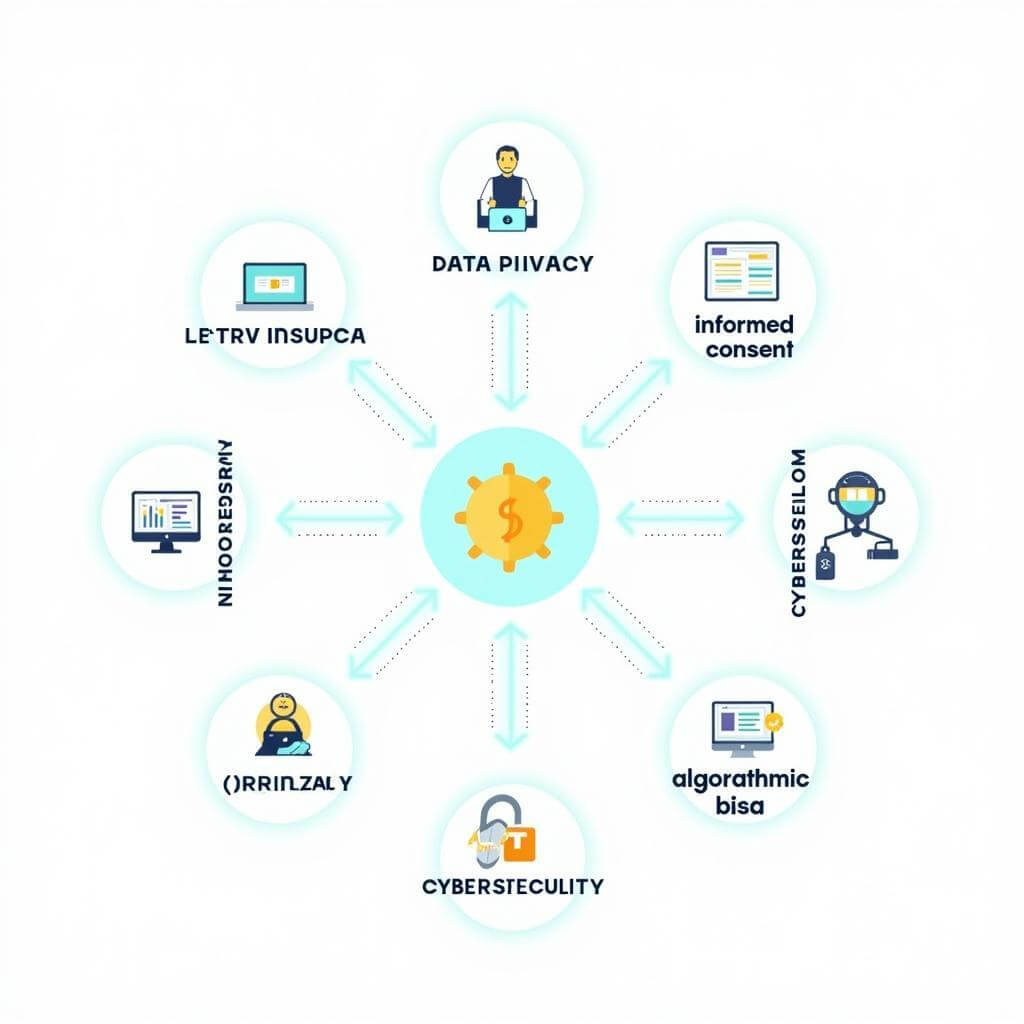The IELTS Reading section often includes challenging passages on various academic topics. One such topic that has gained significance in recent years is remote research projects conducted in digital environments. This article provides a comprehensive IELTS Reading practice test focused on this subject, complete with passages, questions, and answers to help you prepare effectively for your exam.
Digital archives for student research have become increasingly important in remote research projects. Let’s dive into our practice test to explore this topic further.
Passage 1 – Easy Text
The Rise of Remote Research in Digital Environments
Remote research projects conducted in digital environments have become increasingly prevalent in recent years, revolutionizing the way scientists, academics, and students collaborate and gather data. This shift has been driven by advancements in technology, the globalization of research communities, and the need for more efficient and cost-effective research methods.
Digital environments offer numerous advantages for remote research projects. Firstly, they enable researchers from different geographical locations to work together seamlessly, fostering international collaboration and the exchange of ideas. Secondly, digital tools and platforms provide access to vast amounts of data and resources that were previously difficult or impossible to obtain. This has expanded the scope of research possibilities and accelerated the pace of scientific discovery.
Moreover, remote research in digital environments has proven particularly valuable in fields such as environmental science, where long-term monitoring of ecosystems can be conducted without constant physical presence. Collaborative research in environmental education has benefited greatly from these digital tools, allowing students and researchers to engage with real-world data from diverse locations.
However, conducting research remotely also presents challenges. Researchers must adapt to new technologies and methodologies, ensuring data security and privacy in digital spaces. Additionally, the lack of face-to-face interaction can sometimes hinder communication and the development of personal relationships within research teams.
Despite these challenges, the future of remote research in digital environments looks promising. As technology continues to evolve, we can expect even more sophisticated tools and platforms to emerge, further enhancing the capabilities of remote research projects and expanding the frontiers of scientific inquiry.
 Remote research projects in digital environments
Remote research projects in digital environments
Questions 1-5
Do the following statements agree with the information given in the passage? Write
TRUE if the statement agrees with the information
FALSE if the statement contradicts the information
NOT GIVEN if there is no information on this
- Remote research projects in digital environments have become more common in recent years.
- Digital environments allow researchers from different countries to collaborate more easily.
- Remote research is less cost-effective than traditional research methods.
- Environmental science has benefited from remote research in digital environments.
- All researchers prefer digital environments for conducting their studies.
Questions 6-10
Complete the sentences below. Choose NO MORE THAN TWO WORDS from the passage for each answer.
- The shift towards remote research has been influenced by technological advancements, ___ of research communities, and the need for efficiency.
- Digital tools and platforms provide access to large amounts of ___ and resources.
- Remote research has ___ the scope of research possibilities.
- Conducting research remotely requires researchers to adapt to new ___ and methodologies.
- The lack of ___ interaction can sometimes be a drawback in remote research projects.
Passage 2 – Medium Text
Digital Tools Transforming Remote Research
The landscape of scientific research has undergone a significant transformation with the advent of digital tools and platforms designed specifically for remote collaboration. These technological advancements have not only bridged geographical gaps but have also revolutionized data collection, analysis, and dissemination processes. The integration of artificial intelligence, machine learning, and big data analytics into research methodologies has opened up new avenues for exploration and discovery.
One of the most notable developments in remote research is the creation of virtual laboratories. These digital spaces simulate physical lab environments, allowing researchers to conduct experiments, analyze results, and collaborate in real-time, regardless of their physical location. Virtual labs have proven particularly valuable in fields such as chemistry and biology, where traditionally, hands-on experimentation was crucial.
Cloud computing has emerged as another game-changer in remote research. By providing scalable computing power and storage capabilities, cloud platforms enable researchers to process and store vast amounts of data efficiently. This has been particularly beneficial for projects involving genomic sequencing, climate modeling, and particle physics simulations, which require immense computational resources.
The rise of online research communities and forums has facilitated knowledge sharing and peer review on an unprecedented scale. Platforms like ResearchGate and Academia.edu allow scientists to share their findings, seek feedback, and collaborate with colleagues worldwide. This open exchange of ideas has accelerated the pace of scientific discovery and fostered interdisciplinary research.
How digital education platforms are democratizing learning is closely related to the transformation of remote research. These platforms often incorporate research tools and methodologies, preparing students for the realities of modern scientific inquiry.
However, the shift towards digital research environments is not without challenges. Data security and privacy concerns have become paramount, particularly when dealing with sensitive information or proprietary research. Additionally, the digital divide between well-funded institutions and those with limited resources has the potential to create disparities in research capabilities and output.
Despite these challenges, the future of remote research in digital environments looks promising. Emerging technologies such as virtual and augmented reality are poised to further enhance remote collaboration, allowing researchers to interact with data and each other in increasingly immersive ways. As these tools continue to evolve, they will undoubtedly shape the future of scientific inquiry and discovery.
 Virtual laboratories and remote research tools
Virtual laboratories and remote research tools
Questions 11-15
Choose the correct letter, A, B, C, or D.
-
According to the passage, which of the following has NOT been a significant factor in transforming scientific research?
A) Artificial intelligence
B) Machine learning
C) Big data analytics
D) Social media platforms -
Virtual laboratories are particularly useful in which fields?
A) Physics and astronomy
B) Chemistry and biology
C) Mathematics and statistics
D) Geology and geography -
What advantage does cloud computing offer to remote researchers?
A) Improved data security
B) Faster internet speeds
C) Enhanced scalability and storage
D) Better collaboration tools -
Which of the following is mentioned as a challenge in digital research environments?
A) Lack of funding
B) Data security concerns
C) Limited access to journals
D) Shortage of skilled researchers -
What technology is mentioned as having the potential to enhance remote collaboration in the future?
A) Blockchain
B) 5G networks
C) Quantum computing
D) Virtual and augmented reality
Questions 16-20
Complete the summary below. Choose NO MORE THAN TWO WORDS from the passage for each answer.
Remote research has been transformed by digital tools and platforms that facilitate (16) collaboration. Virtual laboratories simulate physical lab environments, allowing researchers to conduct experiments remotely. (17) has become essential for processing large amounts of data, particularly in fields requiring significant computational resources. Online research communities have promoted knowledge sharing and (18) on a global scale. However, the shift to digital research environments has raised concerns about data (19) and privacy. The (20) ___ between well-funded and under-resourced institutions may create disparities in research capabilities.
Passage 3 – Hard Text
The Ethical Implications of Remote Research in Digital Environments
The proliferation of remote research projects conducted in digital environments has ushered in a new era of scientific inquiry, characterized by unprecedented levels of collaboration, data accessibility, and analytical capabilities. However, this paradigm shift has also given rise to a complex array of ethical considerations that researchers, institutions, and policymakers must grapple with. The intersection of technology, data privacy, and scientific integrity presents unique challenges that require careful examination and the development of robust ethical frameworks.
One of the primary ethical concerns in remote digital research is the issue of informed consent. Traditional methods of obtaining consent may not be sufficient in digital environments, where data can be collected passively and continuously. Researchers must navigate the delicate balance between gathering comprehensive data and respecting individuals’ rights to privacy and autonomy. This is particularly challenging in studies involving social media analytics, wearable devices, or internet of things (IoT) sensors, where the boundaries between public and private data are often blurred.
The vast amounts of data generated in digital research environments also raise questions about data ownership, storage, and access rights. While open data initiatives have gained traction in the scientific community, promoting transparency and reproducibility, they must be balanced against the need to protect sensitive information and intellectual property. The concept of data sovereignty, particularly in cross-border research projects, adds another layer of complexity to these considerations.
The rise of hybrid learning environments in education has parallels with the ethical challenges faced in remote research, as both domains grapple with issues of privacy, equity, and digital rights in online spaces.
Another critical ethical issue is the potential for bias in digital research methodologies. Machine learning algorithms and artificial intelligence systems, which are increasingly used in data analysis, can perpetuate or even amplify existing biases if not carefully designed and monitored. Researchers must be vigilant in identifying and mitigating these biases to ensure the validity and fairness of their findings.
The digital divide presents a significant ethical challenge in remote research. Disparities in access to technology and digital literacy can lead to the underrepresentation of certain populations in research studies, potentially skewing results and reinforcing existing inequalities. Addressing this issue requires not only technological solutions but also a commitment to inclusive research practices and capacity building in underserved communities.
Cybersecurity and data protection are paramount ethical concerns in digital research environments. The centralization of large datasets makes them attractive targets for cyberattacks, potentially compromising the privacy of research participants and the integrity of scientific findings. Implementing robust security measures and encryption protocols is essential, but researchers must also consider the ethical implications of data breaches and develop contingency plans for such scenarios.
The rapid pace of technological advancement in digital research tools often outstrips the development of ethical guidelines and regulatory frameworks. This creates a challenging environment where researchers must navigate uncharted ethical territories. Interdisciplinary collaboration between ethicists, legal experts, and scientists is crucial in developing adaptive ethical frameworks that can keep pace with technological innovation.
As remote research in digital environments continues to evolve, it is imperative that the scientific community engages in ongoing dialogue about these ethical challenges. By fostering a culture of ethical awareness and responsibility, researchers can harness the full potential of digital tools while upholding the fundamental principles of scientific integrity and human dignity.
 Ethical considerations in digital research environments
Ethical considerations in digital research environments
Questions 21-26
Complete the sentences below. Choose NO MORE THAN TWO WORDS from the passage for each answer.
- The ethical challenges in remote digital research arise from the intersection of technology, data privacy, and ___.
- In digital environments, obtaining ___ is more challenging due to passive and continuous data collection.
- The concept of ___ adds complexity to data ownership issues in cross-border research projects.
- Machine learning algorithms can potentially ___ existing biases if not properly designed and monitored.
- The ___ can lead to underrepresentation of certain populations in research studies.
- The ___ of large datasets in digital research environments makes them attractive targets for cyberattacks.
Questions 27-33
Do the following statements agree with the claims of the writer in the passage? Write
YES if the statement agrees with the claims of the writer
NO if the statement contradicts the claims of the writer
NOT GIVEN if it is impossible to say what the writer thinks about this
- Traditional methods of obtaining consent are always sufficient in digital research environments.
- Open data initiatives promote transparency but may conflict with the need to protect sensitive information.
- The digital divide only affects developing countries and not developed nations.
- Addressing ethical challenges in remote research requires interdisciplinary collaboration.
- Cybersecurity measures are unnecessary if researchers use encryption protocols.
- Ethical guidelines for digital research are keeping pace with technological advancements.
- Ongoing dialogue about ethical challenges is essential for the future of remote research in digital environments.
Questions 34-40
Complete the summary using the list of words, A-L, below.
Remote research in digital environments presents numerous ethical challenges that researchers must address. One primary concern is (34) , particularly in studies involving social media or IoT devices. Issues of data (35) and access rights are also significant, especially in cross-border projects. The potential for (36) in digital research methodologies, particularly in AI and machine learning systems, requires vigilant monitoring. The (37) poses challenges for inclusive research practices and may lead to (38) of certain populations. (39) is crucial to protect large datasets from cyberattacks. The rapid pace of technological advancement often outpaces the development of ethical (40) ___, necessitating adaptive approaches to research ethics.
A) ownership
B) informed consent
C) bias
D) digital divide
E) underrepresentation
F) cybersecurity
G) guidelines
H) overrepresentation
I) transparency
J) collaboration
K) centralization
L) reproducibility
Answer Key
Passage 1
- TRUE
- TRUE
- FALSE
- TRUE
- NOT GIVEN
- globalization
- data
- expanded
- technologies
- face-to-face
Passage 2
- D
- B
- C
- B
- D
- remote
- Cloud computing
- peer review
- security
- digital divide
Passage 3
- scientific integrity
- informed consent
- data sovereignty
- perpetuate
- digital divide
- centralization
- NO
- YES
- NOT GIVEN
- YES
- NO
- NO
- YES
- B
- A
- C
- D
- E
- F
- G
Remote learning challenges are closely related to the ethical considerations discussed in this passage, as both areas deal with issues of access, privacy, and equity in digital environments.
This comprehensive IELTS Reading practice test on remote research projects in digital environments covers various aspects of the topic, from basic concepts to complex ethical considerations. By working through these passages and questions, you’ll improve your reading comprehension skills and expand your vocabulary in this increasingly important field of study.


